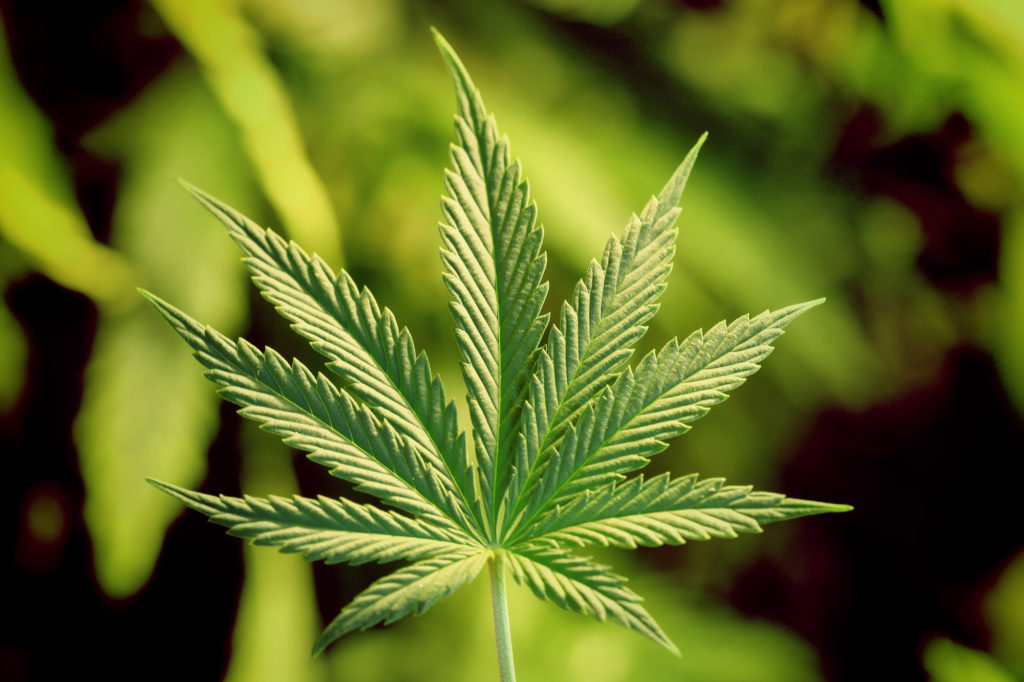Cannabinoid Hyperemesis Syndrome (CHS)
With the increased legalization of marijuana in various states throughout the U.S., we have experienced the most rapid growth of marijuana use since the 1960’s. Along with the increase in use of this drug, we are also seeing patients with symptoms and complications related to daily marijuana use. With the first case diagnosed in 2004, Cannabinoid Hyperemesis Syndrome has become a common, but often overlooked, complication of frequent, long-term use of marijuana.
Cannabinoid Hyperemesis Syndrome (CHS) is a condition in which chronic marijuana users develop recurrent nausea and vomiting. This disorder appears similarly to cyclical vomiting, a condition in which patients develop patterns of nausea, vomiting, and migraine headaches with no underlying cause, but in CHS the nausea and vomiting exclusively impacts those with a history of consistent marijuana use. According to an article published by the National Center for Biotechnology Information (NCBI) in 2017, 97% of patients with CHS reported at least weekly marijuana use, though CHS more prevalent among those who use cannabis on a daily basis.
Currently, the exact cause of Cannabinoid Hyperemesis Syndrome has not been determined, especially considering that marijuana has proven to be effective in relieving similar symptoms in those patients who are prescribed it for medicinal purposes. Because of this, researchers have focused more heavily on the long term use of marijuana as the most likely contributor to symptoms, as opposed to use of the marijuana itself. With long term marijuana use, receptors in the body become desensitized by the continued THC (the main psychoactive ingredient in cannabis) exposure, destroying these receptors and making them less effective. This also contributes to changes in the function of the stomach, pancreas, and the liver, which could worsen these symptoms of nausea, vomiting, and migraine headaches experienced by these patients.
Symptoms
Vomiting and nausea were seen in 100% of patients with CHS, but the condition can also cause abdominal pain and headaches. Depending on the severity of the vomiting, dehydration and electrolyte imbalance can also result from Cannabinoid Hyperemesis Syndrome.
Cannabinoid Hyperemesis Syndrome presents in two phases:
Prodromal Phase: This phase includes more mild but persistent symptoms, primarily early morning abdominal pain and nausea. This phase varies in length, lasting for months or even years before more serious symptoms develop.
Hyperemesis Phase: This phase is more characteristic of CHS, consisting of uncontrollable vomiting, nausea, and occasional abdominal pain and/or headaches.
Treatment
Because CHS is fairly new in the medical world and little research has been conducted on this condition, treatment methods vary depending on provider as well as the severity of symptoms. Currently, management primarily includes medications such as anti-emetics, which help manage nausea, and/or proton pump inhibitors (PPIs), which reduce inflammation in the stomach. If a patient does develop an electrolyte imbalance or dehydration, they may require hospital admission and IV fluids. Though there is no specific cure for CHS, 96.8% of patients in the 2017 NCBI review referenced above reported improvement of symptoms after stopping marijuana use. Patients with CHS have also frequently cited hot showers and baths as methods of relief for their symptoms, but the desired effect is only temporary. Also, Capsaicin Cream rubbed on the abdomen has proven to provide temporary relief from nausea and vomiting in some patients with CHS. Call and schedule an appointment today with one of our providers if you suspect you or your child may have CHS.
Our clinic is actively researching this condition due to recent increase in diagnosed cases, both in outpatient and inpatient settings. Our facility is well suited to manage this syndrome and includes an Infusion Center to provide IV fluid treatment as well as our team of qualified clinicians capable of managing the care of our patients. We also offer a Behavioral Health Clinic with a counselor experienced in managing drug abuse and addiction. If you feel you or your child are experiencing symptoms related to CHS, call GI for Kids today at 865-546-3998 to schedule an appointment.
Written by: Paul Patterson, MA ; Kyla Beals, RN ; Youhanna Al-Tawil, MD ; Mark Altawil, Case Western University Student















